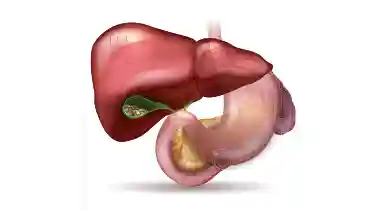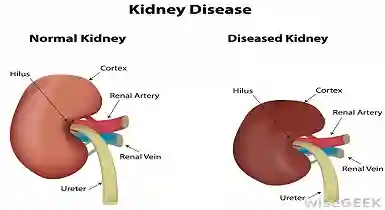Home » Speciality » Kidney Transplant
Kidney Transplant Procedure &
Surgery in India
Experience world-class healthcare with Wockhardt Hospitals, a leading destination for kidney transplant surgery in India.

Why Choose Wockhardt Hospitals
for Kidney Transplant?
The ideals we follow at Wockhardt Hospitals are to provide the best quality treatment possible and enrich the quality of life for our patients. Our medical professionals work hard towards this goal and ensure every patient walking into our hospitals goes back healthier and happier. One of the life-saving specialties in Wockhardt Hospitals is Kidney transplant. Our expert kidney transplant team performs these meticulous procedures with medical expertise, and one can rest assured that we have performed thousands of successful transplants to date.
Our entire team of kidney specialists is well-trained, possesses years of experience, and provides top-notch pre and postoperative care owing to the world-class facilities and state-of-the-art infrastructure. So, you don’t have to think twice once you choose Wockhardt Hospitals to take care of your health.
Renowned Kidney Transplant Surgeons
at Wockhardt Hospitals
- Mumbai Central
- Mira Road
- Nagpur
- Rajkot
What is a Kidney Transplant?
Why Do you Need a
Kidney Transplant Surgery in India?
As mentioned before, a kidney operation or transplant is done when the functioning of both kidneys drops to dangerously low levels.
There are some conditions where a kidney transplant procedure can be done. This includes-
- Renal obstructive conditions include posterior urethral valves, ureteropelvic junction obstruction, megaureter, etc.
- Congenital nephrotic syndrome
- Polycystic kidney disease
- Nail-patella syndrome
- Glomerulonephritis
- Berger disease
- Henoch-schonlein purpura
- Wegener’s granulomatosis
While it is possible to survive on regular dialysis, an external machine that removes waste and purifies the blood, a kidney transplant can be life-changing in many ways.
A kidney transplant can be a treatment option for chronic kidney diseases or end-stage renal disease where one gets:
- Better quality of life
- Reduced risks from dialysis
- Reduced mortality
- Dietary options
- Reduced treatment cost in the long run.
Our doctors at Wockhardt Hospitals will be able to guide you and advise you based on your condition.
How Do I Get Ready for a
Kidney Operation?
Planning for kidney surgery can be of great use in case of a Kidney transplant. Most of these instructions will be given by the surgeons at Wockhardt Hospitals.
Here are some of the basic things to keep in mind before the kidney transplant:

- Other medications: Talk about the other medications that you are on, especially ones like blood thinners, as they will have to be stopped before the surgery, at least for one week.
-
Food: Eat light meals on the day before the surgery and a liquid diet from the night before.
-
Stay Hydrated: Take sufficient water and avoid complex foods and liquids. Make sure there is good bowel movement before the kidney surgery.
- Stop Smoking: Make sure you stop smoking at least 4 weeks before the surgery, as smoking can have various complications.
Kidney Transplant
Procedure
- Assessing if you are eligible for a Kidney transplant - Only if you meet certain criteria will you be eligible for the kidney operation. This includes the condition, your overall fitness, age, weight, etc.
- Finding an eligible donor - Kidney donors can be both living and deceased members. Living usually includes a family member or friend. Deceased donors are cadaver donors from those who have already chosen to donate without a disease.
- Matching process - The blood types are matched, the human leukocyte is matched, and once these are confirmed, it is checked if the recipient’s antibodies will attack the transplant. This is called crossmatching.
- The process - Once you are prepped at the hospital, your blood sample is taken for an antibody test. The entire process is done under general anesthesia, which starts from the premedication to the IV anesthetic. This is followed by a complete kidney operation.
- Postoperative care - You will be kept under monitory until all systems are to go. Once a stable state is reached, the kidney is checked for proper elimination of wastes. The doctor will also prescribe postoperative medications along with immunosuppressants.
- Discharge - You will be discharged after a thorough examination. Medications will be given that need to be strictly followed. This includes pain medications, immunosuppressants, anti-inflammatories, and antibiotics as well. Follow-up is essential to ensure the success of the kidney surgery and also to ensure that there are no issues as such.
What Happens During a
Kidney Transplant Treatment?
A kidney transplant operation is a major operation that requires prior preparation, planning, proper care, and aftercare. The entire kidney transplant procedure is as follows:
- First, the recipient is checked if fit for surgery. This includes overall general fitness for surgery and needs for surgery.
- The donor needs to be found, which could be a known person. If not, one has to register in a roster list for turn-wise allotments. This donor can be either a living donor or a cadaver/dead donor.
- The donor also needs to undergo evaluation based on their fitness and compatibility with the recipient. This includes blood typing, HLA matching, antibody compatibility, etc.
- The transplant operation is performed under general anesthesia, and the transplant is carried out, ensuring blood flow is present.
- After the surgery, the patient is kept under observation so that one can watch out for any complications.
- Postoperative care includes medications, a proper diet, and enough consumption of water.
What Happens After a
Kidney Transplant Treatment?
The postoperative period is of great importance for the success of kidney transplant surgery. It includes the recovery period and postoperative care at home as well. There might be postoperative pain, for which the doctors will prescribe medications. Immunosuppressants will also be given, as there shouldn’t be any rejection of the foreign organ.
You can leave the hospital in the second week. Thereafter, regular appointments are necessary to ensure the proper functioning of the kidney transplant. After a few months, one can return to their regular life.
How to Choose the Best Kidney
Transplant Surgery Hospital in India?
Many hospitals offer complex procedures like kidney transplants in India. Making a choice might be difficult, but one can go for hospitals that have an expert team of medical professionals, cutting-edge equipment, good in-patient facilities, and a good track record. One such hospital that will be able to satisfy you in all these ways is Wockhardt Hospitals for Kidney Transplants. We can easily say that we provide the best overall treatment experience for a Kidney transplant in India from all aspects while being understanding and compassionate towards our patients and their family.
What Tests Are Done
Before a Kidney Transplantation?
A kidney donor might be alive or dead, related or unrelated to you. When determining if a donor kidney is a suitable match for you, your transplant team will take various criteria into account.
Tests to see if a donated kidney is right for you include:
- Blood Typing and Crossmatching: It is ideal to have a kidney transplant from a donor whose blood profile matches or is compatible with yours. This test determines the blood type compatibility between the donor and recipient. Crossmatching helps identify potential antibodies that may cause rejection.
- Tissue Typing: The next stage, if your blood type is compatible, is to undergo tissue typing, also called Human Leukocyte Antigen (HLA) typing. This test compares genetic markers associated with a longer survival period for the transplanted kidney. The likelihood of your body rejecting the organ is lower if the match is good.
- Infection and general health: This is a test for HIV, Hepatitis B & C, and other infectious diseases. The test identifies potential risks and ensures a safe transplant.
- Lung Test: Assesses lung function to ensure the recipient can tolerate surgery and anaesthesia.
- Heart Test: ECG and echocardiogram assess the recipient's cardiac health. The test ensures the heart can withstand the stress of surgery and immunosuppressive medications.
- Imaging Test: MRIs and CT scans offer fine-grained pictures of the kidneys that can be used to detect anomalies. Doppler ultrasonography evaluates the kidneys' blood flow.
- Psychological Evaluation: Evaluates the mental and emotional readiness of both donor and recipient. Assesses their ability to cope with the transplant process and postoperative care.
What are the Different
Types of Kidney Transplants?
There are several types of kidney transplants, each with its unique characteristics.
Deceased Donor Kidney Transplant
Surgically transplanting a deceased donor’s kidney into the body of a recipient, whose natural kidneys are damaged or malfunctioning, is known as a deceased donor kidney transplant. Donor organs are often obtained from deceased individuals who have signed organ donor cards and made the decision to give their organs prior to passing away. When a person passes away, their family may also provide permission for donation.
Living Donor Kidney Transplant
Living donor transplantation involves a healthy individual donating one of their kidneys to a person in need. Sometimes, the living donor is a parent, sibling, or child from the immediate family. Living kidney donors might also be complete strangers or compassionate individuals who wish to assist a kidney-needy person. Due to compatibility, biological siblings typically make the best live donors. However, due to developments in medication and therapy for preventing rejection, anyone with a suitable blood type can now be considered a donor. The primary benefit of a kidney transplant from a living donor versus one from a deceased donor is its far higher success rate.
Kidney Transplant Blogs
FAQs on Kidney Transplant Surgery
Q. How long does a transplanted kidney last?
A transplanted kidney’s life span varies, but on average, it lasts about 10 to 15 years. However, advancements in medical care and immunosuppressive therapies continue to improve long-term outcomes for kidney transplant recipients.
Q. What risks are associated with kidney transplant surgery?
Kidney transplant surgery entails risks such as rejection, infections due to immunosuppression, bleeding, clotting, side effects from medications, organ damage, and postoperative complications like fluid collection or infections. Diligent medical monitoring and adherence to prescribed treatments are essential to mitigate these risks and ensure a successful outcome.
Q. How successful is a kidney transplant?
Q. How painful is a kidney transplant?
Q. Is kidney transplant surgery affordable in India?
Q. Can you live without a kidney?
Q. Is kidney transplant surgery risky?
Q. Do's and Don'ts before kidney operation?
| Dos | Don’ts |
|---|---|
| Drink plenty of water to eliminate toxins. | Don’t smoke or drink alcohol at least a week before surgery. |
| Stop consumption of solid food from the night before. | Don’t perform any activity that would reduce your fitness level before the surgery. |
| Ensure an active lifestyle, proper health, and fitness prior to surgery. | Don’t take on added strain both physically and mentally before the kidney operation. |
| Try to find a known source of the living donor, as they would be a better match and have higher success rates compared to deceased donors. | Don’t hide any medical issues from your doctor. |






























